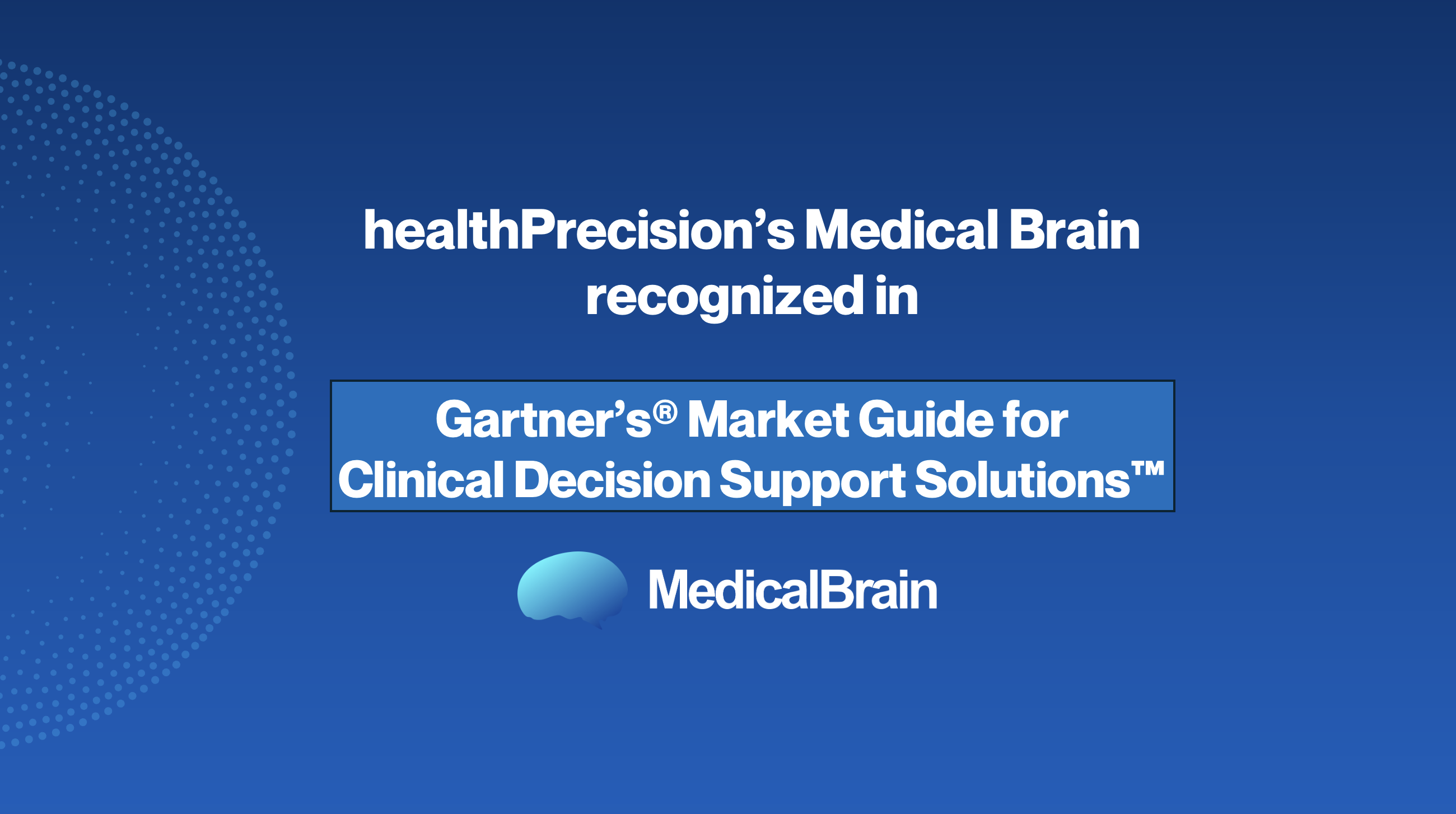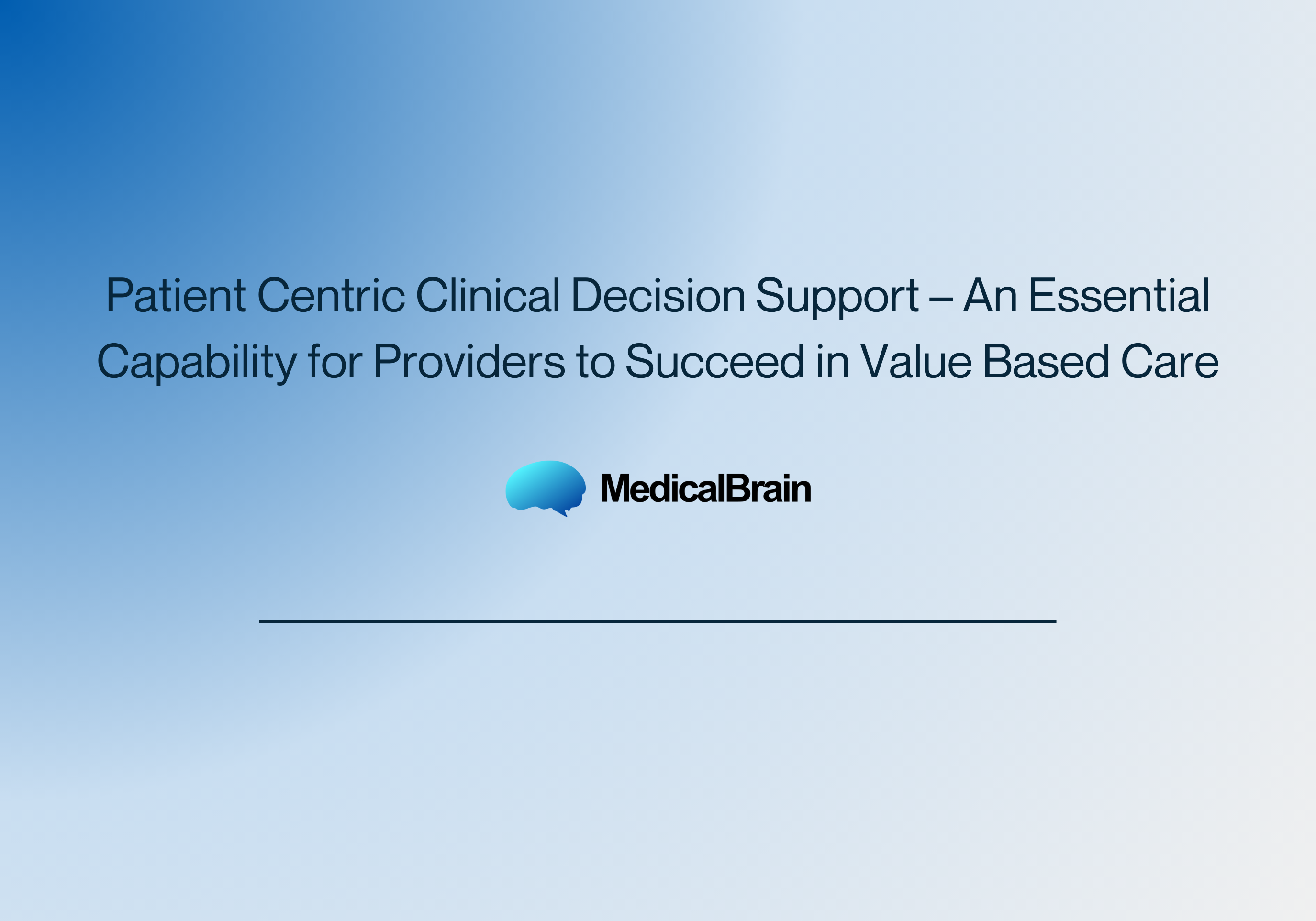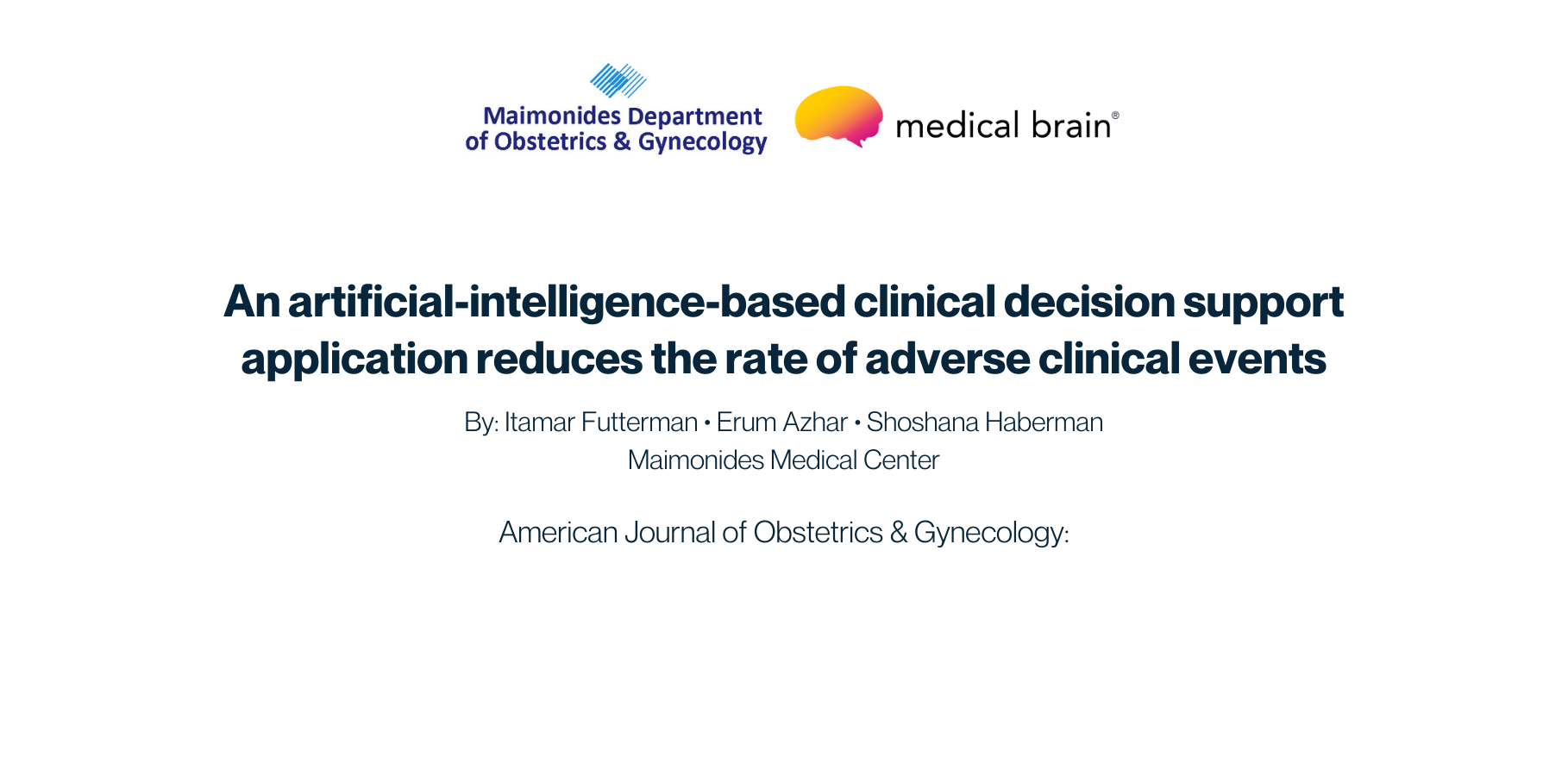
healthPrecision’s Medical Brain recognized by Gartner® in the Market Guide for Clinical Decision Support Solutions™
The Medical Brain: Revolutionizing Patient-Centric Clinical Decision Support
The Medical Brain, a clinical digital assistant used by providers and their patients was cited by Gartner® in its report, Market Guide for Clinical Decision Support Solutions™ as a sample technology vendor for patient-centric clinical decision support.
Gartner’s Market Analysis
The Gartner Market Guide for Clinical Decision Support Solutions™ provides critical input for strategic planning with a market analysis of current Clinical Decision Support (CDS) capabilities, gaps and emerging and future trends in CDS advancement. The Medical Brain is cited as a vendor providing a future model, taking CDS to the next level with patient-centric clinical decision support.
Insight from the Experts
The author, Veronica Walk notes that Clinical Decision Support solutions are gaining traction, yet most are embedded in EHRs and have limited capabilities to address the breadth, variability and complexity of care most patients require. As a result, providers are increasingly seeking AI based CDS solutions with expanded knowledge sets to cover a wider range of clinical demands. As well, providers are seeking the ability to engage their patients in shared decision making with patient-centric CDS.
That’s where the Medical Brain comes in, notes Lauren Arnold, PhD of healthPrecision. The Medical Brain’s patient-centric clinical decision support gathers all patient data and patient generated inputs, analyzes that data to detect health deterioration, care gaps and delays, and errors. Using CDS, the Medical Brain generates clinical insights to the patient so they can take immediate corrective action. Only when needed, providers are contacted for intervention. The result is better disease control, improved patient satisfaction, lower costs and a 92% reduction of provider follow-up tasks.
Recognition by Gartner
“healthPrecision and the Medical Brain AI platform are honored to be named by Gartner as Clinical Decision Support vendor,” said Dr. Eyal Ephrat, MD and CEO of healthPrecision. “healthPrecision’s recognition is testament to the Medical Brain’s ability to provide patient-centric decision support and integrate real-time care orchestration for a complete, whole person care platform. We thank Gartner for their thoughtful and thorough analysis and look forward to working with provider groups, health systems and ACOs to help them achieve their value-based care goals.”
To learn more about the Medical Brain contact us here.
*Gartner, Market Guide for Clinical Decision Support Solutions, Veronica Walk, Nov. 2023. Market Guide for Clinical Decision Support Solutions (gartner.com)


